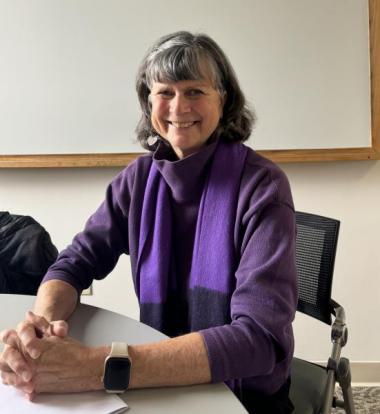
And that's what my book is about and a lot of the work I do with people is about is showing there's a… [gently hits hand on the table] Schools are based on like a model of people working in the factories a long time ago. So, if you're someone that fits into kind of a range of expectations, school works for you, and it's not always the smartest people that school works for. But there's a lot of other people who are very smart that go to school and because they don't fit into that norm, they get sort of othered and it could be that you speak multiple languages, you're learning English, it might be you learn differently.......So, that's one of the things I feel having this network of people I’m able to share things that aren't traditional school and sort of by publishing and by networking and social media now you don't just write a book, you can get out there and I'll be talking to teachers at the Mass Reading Conference at the end of April. So it's you really want to trust teachers and support teachers as much as possible, and also those students that there's no reason they should be thought of as deficient in schools and yet the way schools are structured, they end up that way, like being treated that way.
Patricia Paugh was born in Teaneck, New Jersey in 1956. In 1974 Patricia moved from Long Island, New York to Worcester, Massachusetts to attend college at Assumption College. Patricia graduated from Assumption with a degree in psychology. After graduation she married James Paugh and had her son, Jim who is now 45 with two kids of his own. Patricia eventually went on to further her education; she became a reading specialist at Worcester State University, got her master’s degree in teaching from Harvard University, and received her doctorate from Boston College. Patricia is currently a professor at the University of Massachusetts Boston, but has also taught at the University of Massachusetts Amherst, Boston College, and many elementary schools in Worcester and the surrounding areas. In this interview Patricia discusses some of her experiences as a teacher over the years, as well as the path that led her to becoming a teacher and a professor. She also discusses some of the hardships and challenges that she sees in the profession and struggles she faced as a woman and a mother working to make a difference in other’s lives. In this interview she also shares some of the success over the years, like writing three books and being a part of both national and international communities regarding education and literacy.
